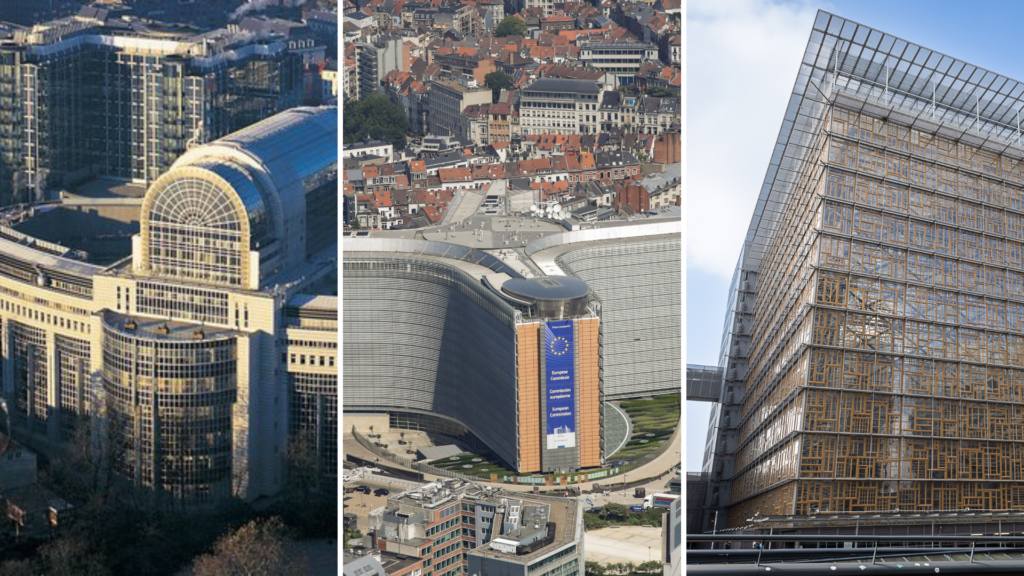In the run-up to the European elections on 9 June, voters may be wondering what exactly they are voting for and whether it will have an impact.
Citizens tend to forget the key role played by the EU's four political institutions: the European Commission, the European Parliament, the European Council, and the Council of the European Union.
Yet, these institutions influence and decide on crucial EU policy, which directly impacts the nearly 450 million citizens of the 27 Member States.
A survey conducted by consumer rights organisation Test Achats tested citizens of Italy, Spain, Portugal and Belgium on their knowledge of institutions and decision-making in the EU.
On average, only 26% felt well-informed, while 20% felt poorly or not informed. Quite paradoxically, Belgium ended up at the bottom, with 22% well-informed and 25% poorly or not informed.
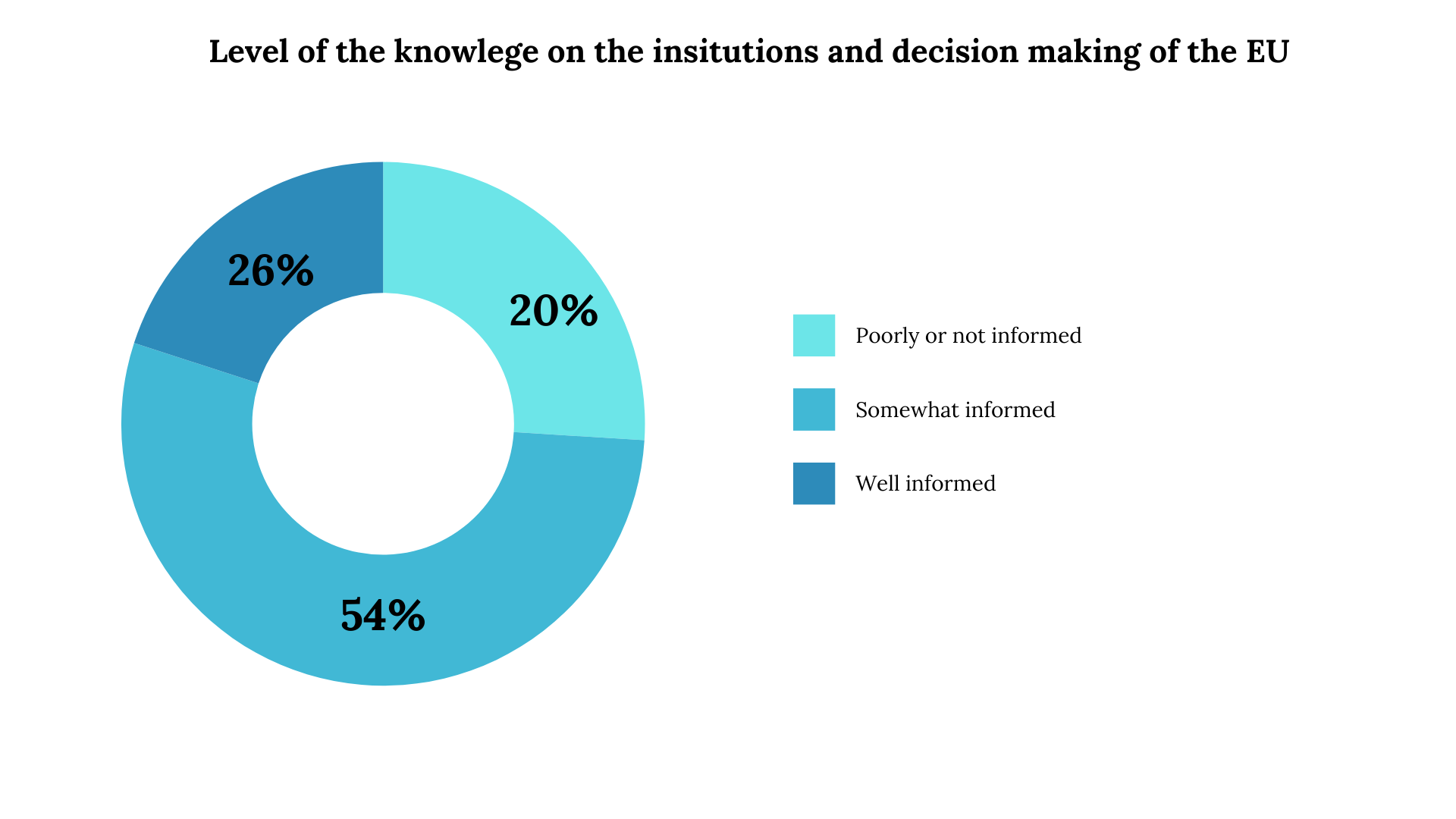
Source: Test Achats
In the run-up to the elections and to mark Europe Day, therefore, here is an an explainer of the role of each of the four political institutions and how they impact citizens' lives.
Initiating policy ideas
The Commission is at the beginning of the EU's decision-making chain. It is the EU executive – it essentially proposes and enforces legislation. It is the only institution that can do this and acts in the interests of the EU.
The institution is led by a President (currently Ursula von der Leyen) and 27 commissioners (one for each Member State), all assigned to an individual portfolio, which could be compared to a ministry at the domestic level.
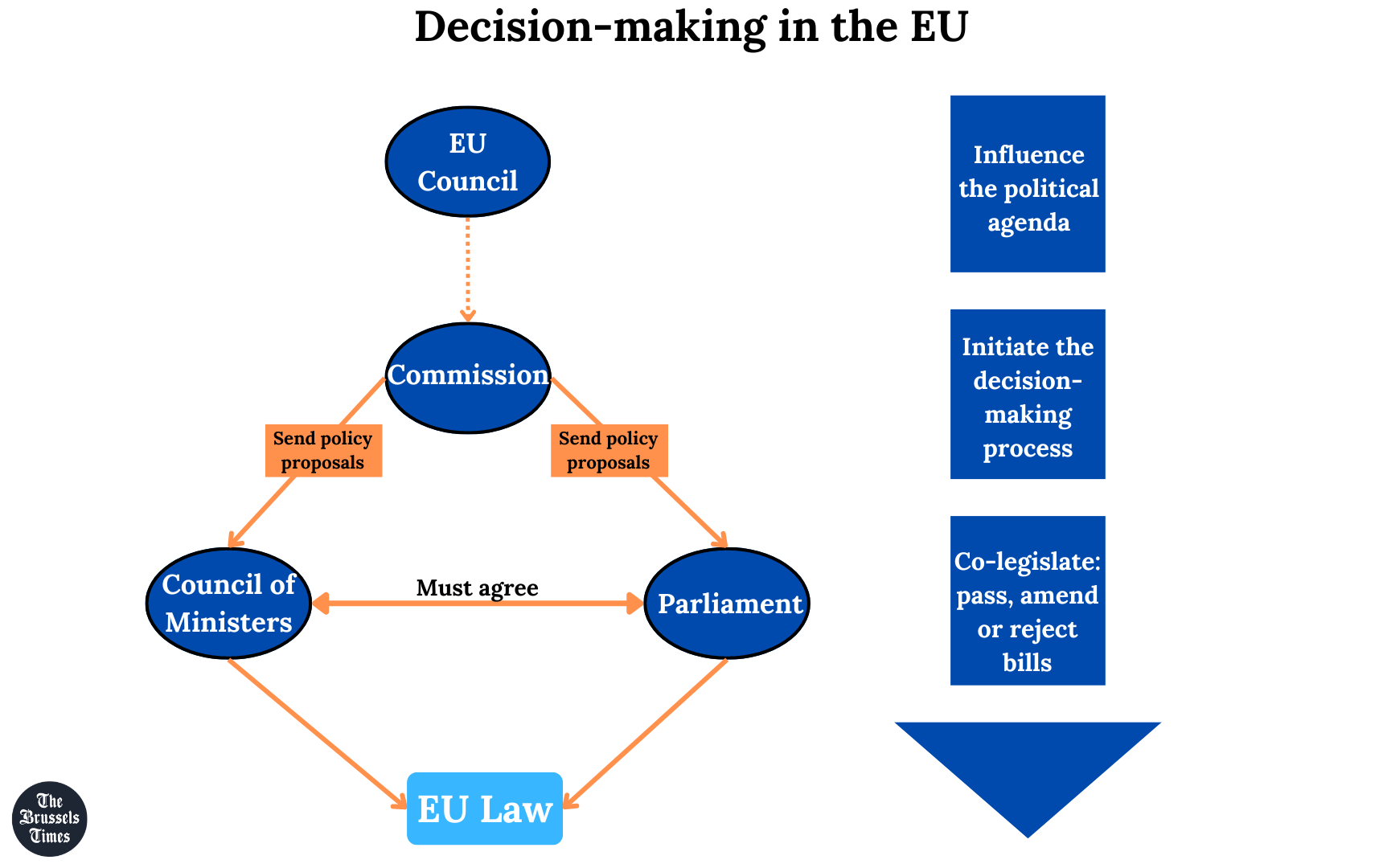
Credit: The Brussels Times
It should be noted, however, that the European Council, made up of heads of state and government of each Member State, influences the political agenda of the Commission. It is the intergovernmental body that sets the Union's vision by informally setting long-term objectives.
Moreover, the European Council appoints the President of the Commission – a role that many see as undemocratic and horse-trading between governments behind closed doors. The European Council's role is therefore primarily political, but neither executive nor legislative.
In some ways, the Commission reflects the political leanings of European citizens. Its president is appointed by the democratically elected political leaders of each country, and the outcome of the European election (can) have a strong influence on that choice. While it doesn't seem obvious, citizens' vote in national and European elections may (indirectly) determine the choice of the Commission.
Legislating
Once they have been formulated, all legislative proposals are sent to the European Parliament and the Council of the European Union (also known as the 'Council of Ministers of the European Union' or the 'Council'): only these two institutions have a legislative function, and decide whether to adopt or amend these proposals.
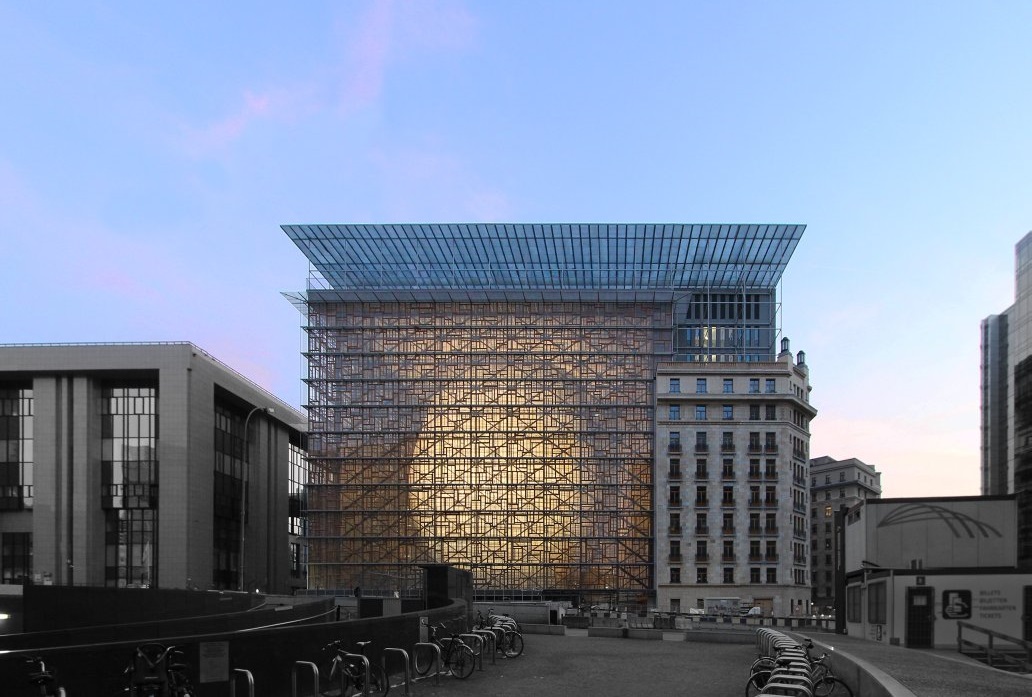
The Europa building, hosting the Council of the EU and the European Council meetings in Brussels. Credit: Wikimedia Commons
The Council is an intergovernmental body that acts in the interests of national governments. It brings together the ministers of the Member States by area of activity (such as finance, agriculture, or foreign affairs).
The European Parliament – another supranational institution – is elected by the people. Comprising 705 MEPs and divided into several political families, it is sometimes referred to as "the voice of citizens." It represents the second-largest democratic electorate in the world. MEPs debate and vote the laws suggested by the commission. These laws range from initiatives such as prohibiting single-use plastics to capping the price of mobile phone calls or packaging and labelling rules for e-cigarettes.
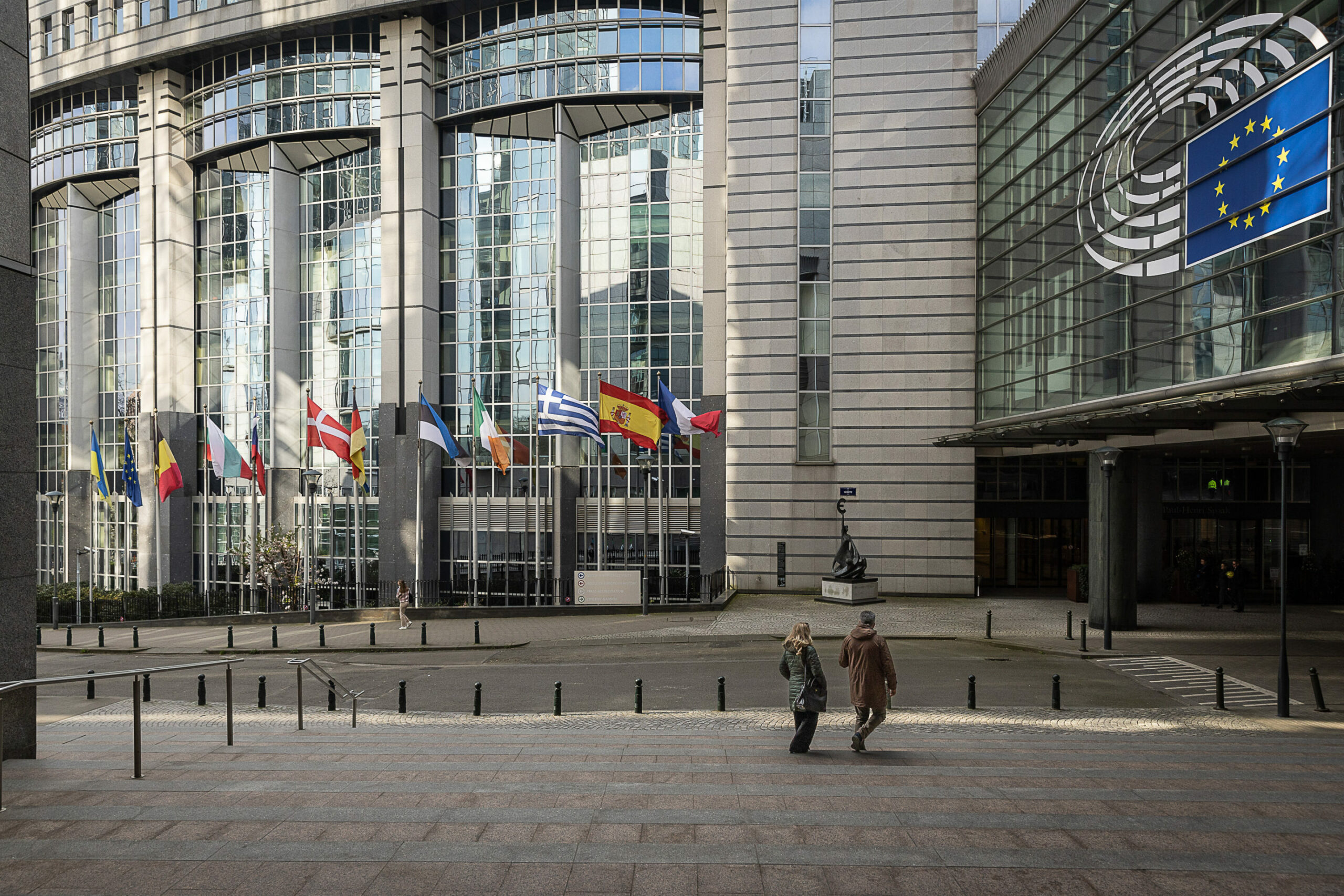
The European Parliament. Credit: Belga / James Arthur Gekiere
Both the Parliament and the Council must approve the proposed legislation before it can be implemented. Of course, it is never that simple, and they often consult each other and sometimes with the Commission to reach an agreement. If the Commission does not agree with the changes, it is able to withdraw its proposal.
Once the bill is agreed upon by all parties, it officially becomes European law. If it’s a regulation, all the EU Member States have to implement it uniformly without transposing it into national law. If it's a directive, it requires EU countries to achieve a certain result but leaves them free to choose how to do so.
Europe is creating policies on many areas today, impacting all the Member States and their citizens. The composition of some of the institutions will depend on the outcome of the election – so, everyone's vote counts.

